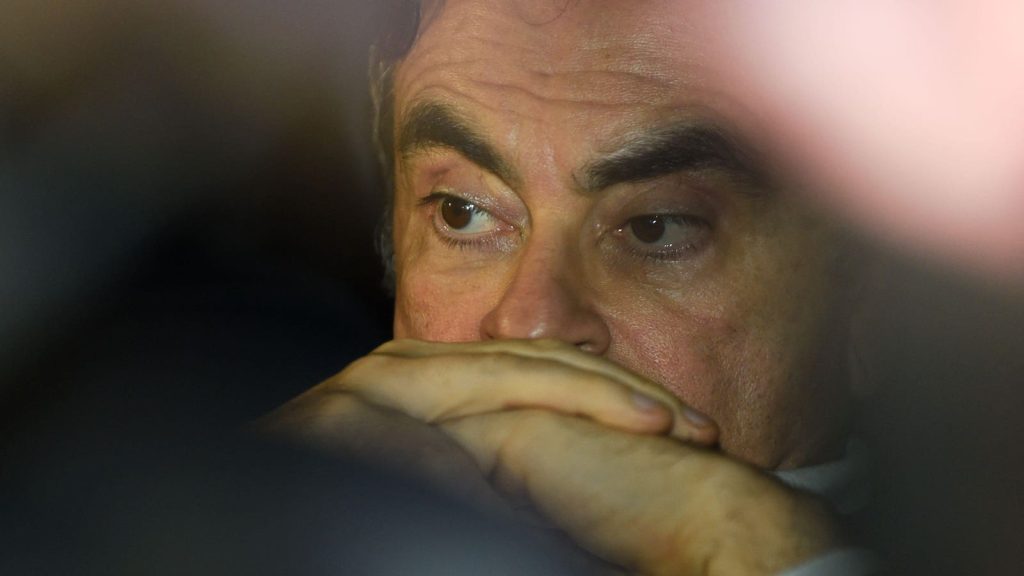“If they drop the charges, it doesn’t mean that we’re even. They have to compensate me for the damage they’ve done.”
Carlos Ghosn built his reputation as the leader who rescued Renault from near bankruptcy and then did the same at Nissan after orchestrating a powerful alliance that ultimately included Mitsubishi Motors. That alliance was poised to potentially expand to include Fiat Chrysler when Ghosn was suddenly arrested after landing in Tokyo on November 19, 2018 on charges of allegedly underreporting his compensation to the Japanese government.
The former auto industry titan then spent more than 100 days in a small, unheated jail cell—a detention that the UN Human Rights Council described as “arbitrary and unlawful.” Released on $8.9 million bail and put under house arrest, he dramatically escaped Japan in an audio equipment box, saying the charges against him were politically motivated and he had no chance of a fair trial.
He now lives as a fugitive in Lebanon, where he recently filed a $1.1 billion lawsuit against Nissan and a dozen executives. That’s where he joined me on Tuesday to talk about his lawsuit, the state of the Renault–Nissan–Mitsubishi Alliance, Elon Musk, electric vehicles and more.
Fighting As A Fugitive
The lawsuit, which seeks $588 million in compensation and $500 million in punitive damages from Nissan and a dozen named individuals, was filed in Lebanon as that’s where some of the alleged crimes against him were committed. The timing of the suit reflects how long it took Ghosn to compile evidence after he lost access to his phone, laptop, email and other records at the time of his arrest.
“I think today I’ve got probably 30% of what I had before,” says Ghosn. “But the 30% is so obvious, so incriminating, that we decided to go ahead with it.”
Ghosn notes that he was initially arrested on one charge: “underreporting compensation that was neither decided, nor paid.” Although Ghosn became the highest-paid executive in Japan, his pay was significantly less than industry rivals like GM CEO Mary Barra—a role he says former auto czar Steve Rattner offered him in 2009. While the charges against Ghosn have not been tested in court, the regulations and negotiations in compensating the global head of a multinational alliance were complex.
“Strange Conflict” At Nissan
“Today, we have a facade of an alliance and the last chapter was this strange conflict between the CEO and COO, where the COO was defenestrated,” says Ghosn. At Tuesday’s shareholder meeting, Ghosn adds, “there was not one single question about why the COO left the company, there was not a single question about the lawsuit I brought against the company.”
What’s most noteworthy to Ghosn, though, were the number of shareholders in attendance: 243. “When I was CEO of the company for 19 years, I had an average of 2,000 shareholders at our meetings,” he said, calling the meeting an “organized show” with “zero transparency” on what’s really going on.
“This whole story started because the Japanese no longer trusted the French,” he says. “The divorce is written on the wall.”
On EVs and Elon Musk
Ghosn also reflected on where he sees opportunities in the auto industry—he says he advises a number of entrepreneurs and industry peers—and on the push to electric vehicles. In 2009, he and Elon Musk were pioneers with the Nissan Leaf and Tesla respectively. “He created his own company. I didn’t. This was my mistake,” says Ghosn. “If I had created a startup about electric cars or batteries, I would be in a completely different position.”
Click on the video above for more of Ghosn’s thoughts on EVs, executive pay, and what he’s willing to do to regain his reputation and freedom from arrest.
“If they drop the charges, it doesn’t mean that we’re even. They have to compensate me for the damage they’ve done.”
Read the full article here










